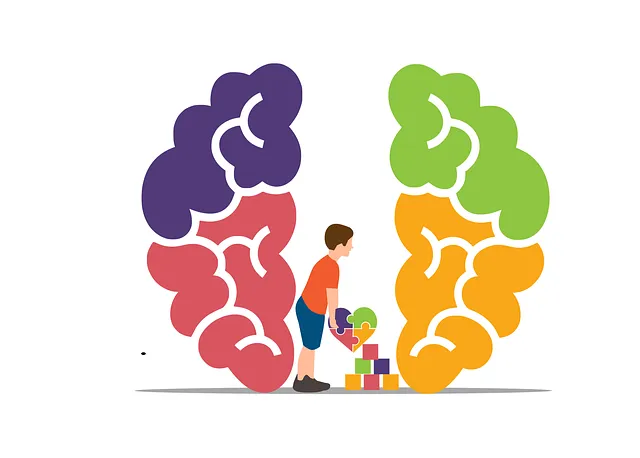Mental health data analysis leverages diverse sources like surveys, clinical records, social media, and patient reports to gain insights into individual and community well-being. Kaiser, a leading provider in Littleton, offers holistic care through individual therapy and community engagement programs, addressing various therapeutic needs. Advanced techniques such as statistical analysis, machine learning, and AI personalize care and identify trends. Analyzing these data types helps uncover mental health challenges and promote understanding of access to care disparities, like coverage provided by Kaiser in Littleton for mental health therapy. Ethical considerations are crucial, balancing data utilization with patient privacy and confidentiality.
Mental health data analysis is a growing field, crucial for understanding and addressing the complex needs of individuals seeking support. This article explores various aspects of this critical process, from deciphering different types and sources of mental health data to uncovering valuable trends. We examine the role of providers like Kaiser in delivering essential mental health services and delve into the techniques and tools used in analysis. Additionally, ethical considerations are discussed, as we navigate the sensitive landscape of mental health data, including coverage details like what Littleton does Kaiser cover for mental health therapy.
- Understanding Mental Health Data: Types and Sources
- The Role of Kaiser in Providing Mental Health Services
- Analyzing Mental Health Data: Techniques and Tools
- Interpreting Mental Health Trends: Insights and Applications
- Ethical Considerations in Mental Health Data Analysis
Understanding Mental Health Data: Types and Sources

Mental health data analysis involves understanding a diverse range of information that can offer valuable insights into an individual’s or population’s psychological well-being. This data can be categorized into several types, each offering unique perspectives on mental health status and trends. Surveys and questionnaires are common sources, providing structured assessments of symptoms, attitudes, and behaviors related to mental health. Clinical records, including those from therapy sessions, offer a more direct view of individuals’ struggles and the interventions they receive, such as Mindfulness Meditation or Conflict Resolution Techniques.
Another significant aspect is understanding where this data originates. Hospitals, clinics, and healthcare providers are primary sources, capturing information during patient interactions. Online platforms and mobile apps have also emerged as valuable resources, allowing individuals to track their mental health through self-reported assessments and journaling. Even social media data can provide insights into broader societal trends in mental well-being, though privacy considerations must be addressed. For instance, Compassion Cultivation Practices might be identified as growing trends through social media analysis. Understanding these data types and sources is crucial when examining mental health, especially when considering access to care, like that offered by Kaiser in Littleton, for various therapeutic needs.
The Role of Kaiser in Providing Mental Health Services

Kaiser has established itself as a prominent provider of mental health services, offering a comprehensive range of programs and resources to its members. With locations across various regions, including Littleton, Kaiser’s presence ensures accessibility to quality care. The organization prides itself on its holistic approach, addressing not only individual therapy but also focusing on community outreach and social skills training. This multi-faceted strategy empowers individuals with the tools necessary for long-term mental wellness.
The network’s strength lies in its ability to integrate different services seamlessly. From routine check-ups and counseling sessions to specialized programs targeting specific mental health concerns, Kaiser caters to diverse needs. For instance, their community outreach programs aim to foster connections and support within local communities, while their risk assessment protocols ensure that mental health professionals are equipped to handle potential hazards in a safe and effective manner. This comprehensive coverage underlines Kaiser’s commitment to holistic mental healthcare.
Analyzing Mental Health Data: Techniques and Tools

Analyzing mental health data requires a multifaceted approach to uncover meaningful insights and trends. Techniques such as statistical analysis, machine learning algorithms, and predictive modeling are employed to identify patterns in large datasets, enabling professionals to better understand population-level mental health trends and personalize care for individuals. Advanced tools like artificial intelligence (AI) can process vast amounts of textual data from therapy sessions, surveys, and social media posts, offering a deeper dive into patients’ experiences and sentiments.
When considering specific aspects like Littleton does Kaiser cover mental health therapy or Cultural Sensitivity in Mental Healthcare Practice, the right data analysis tools must be selected based on the nature of the information. For instance, the Mental Wellness Podcast Series Production can benefit from audio analytics to transcribe and analyze conversations, while Social Skills Training programs might use behavioral tracking software to monitor and evaluate patient interactions. These methods collectively contribute to a more comprehensive understanding of mental health, paving the way for innovative interventions and improved patient outcomes.
Interpreting Mental Health Trends: Insights and Applications

Interpreting mental health trends is a powerful tool for understanding and improving overall well-being. By analyzing data from various sources, including surveys, medical records, and social media, researchers can identify patterns and insights that shed light on common challenges and emerging issues within communities. For instance, tracking rates of anxiety disorders over time might reveal a correlation with increasing work pressures or social media usage, prompting targeted interventions to build inner strength and confidence boosting strategies.
In the context of mental illness stigma reduction efforts, data-driven trends can help dispel myths and promote understanding. For example, analyzing demographics and geographic distributions of specific mental health conditions can highlight disparities in access to care. This information is crucial for guiding policy decisions and resource allocation, ensuring that support systems like Littleton does Kaiser cover mental health therapy are tailored to meet diverse needs effectively.
Ethical Considerations in Mental Health Data Analysis

In the realm of mental health data analysis, ethical considerations are paramount. As researchers and practitioners delve into intricate datasets to uncover trends and insights, they must navigate a complex web of privacy and consent issues. Ensuring patient confidentiality is non-negotiable; protecting sensitive information about individuals’ mental health journeys is crucial for fostering trust. Specifically, organizations like Kaiser, which offers mental health therapy services, face the challenge of balancing data utilization for research and treatment improvement with the preservation of patient privacy, especially when it comes to identifying trends across diverse populations, as in the case of Littleton.
Moreover, ethical analysis involves considering the potential impact on vulnerable populations. For instance, while data can be a powerful tool for understanding and improving mental wellness, it must not perpetuate stereotypes or lead to discriminatory practices. Building empathy through data interpretation is key; strategies that enhance confidence in one’s ability to manage mental health are essential outcomes. Ultimately, responsible data analysis respects individual autonomy, promotes fairness, and contributes to the development of effective Empathy Building Strategies for enhancing Mental Wellness.
Mental health data analysis plays a pivotal role in understanding and addressing societal challenges. As organizations like Kaiser continue to provide essential services, leveraging advanced techniques for data interpretation becomes crucial. By analyzing trends, we can better allocate resources, personalize treatments, and ultimately improve outcomes. However, it’s imperative to navigate ethical considerations carefully, ensuring privacy, consent, and the responsible use of sensitive mental health data. For instance, understanding how Kaiser covers mental health therapy in areas like Littleton can inform policy decisions and service expansions based on empirical evidence.






